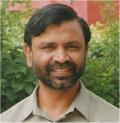The Independent Newsweekly
| National
Catholic Reporter
The Independent Newsweekly |
| Global Perspective |
| August 27, 2003 |
Vol.
1, No. 22
|

Fr. Dominic Emmanuel, a priest of the Divine Word, is the director of the communication and information bureau of the Delhi Catholic archdiocese. "The report of the excavation of the disputed site at Ayodhya came as a total surprise to everyone -- except those campaigning for the construction of the Ram temple." |
The Mumbai bomb blasts and the Ayodhya tangleBy Dominic Emmanuel, SVD NEW DELHI -- More than 50 people were killed and about 170 injured in bomb blasts that rocked Bombay Aug 25. These blasts coincided with the Lucknow High Court making public a report from the Archeological Survey of India, which had completed excavating a site in Ayodhya, northern India, where once stood a mosque, reportedly built atop the ruins of a Hindu temple. Ten years ago, Hindu nationalist demolished the Babri mosque in Ayodhya and sparked violent clashes between Hindus and Muslims that left thousands dead and injured. Media reports of preliminary findings of the archeological survey said the excavations found no signs of a temple on the sites. Thus, nearly everyone was caught by surprise when the final report said there was some evidence of a temple-like structure dating to the 10th century. The report generated extreme reactions. The coincidental timing of the final report and blasts cause widespread speculation that the two events were linked. The speculation was given credence by history: In the turmoil that followed the demolition of the Babri mosque, Mumbai was engulfed in riots and bombings that left 300 dead and nearly 1,000 injured. The evidence for the latest blasts, however, hardly supports any linkage. For one thing, Mumbai has been plagued by blasts for the last nine months; this year until Aug. 25, 17 people have been killed and many more injured. Secondly, such powerful blasts in crowded areas require much longer planning than a response to the archeological report would have allowed. A more compelling reason to believe that these blasts are related to last year's massacre of Muslims in Gujarat is that the site of the most powerful blast, which killed 35 people, was a jewelry market that is dominated by Gujarati businessmen. Nonetheless, the evidence so far suggests that the bombings were the handiwork of Islamic militants. History politicized
The report of the excavation of the disputed site at Ayodhya came as a total surprise to everyone -- except those campaigning for the construction of the Ram temple. The Vishwa Hindu Parishad (VHP, World Hindu Organization) is jubilant, saying that its stand has been vindicated and that Muslims now should hand over the disputed site to the Hindus for construction of the temple. The general secretary of that organization, Giriraj Kishore, has said the central government should act to build a temple on the site, even if that would cause the downfall of the government. A more raucous comment came from the RSS (National Voluntary Corps), another Hindu group. Spokesperson Ram Madhav said, "[The archeological survey] is a slap on the face of our secularist friends and a section of the media. Muslims should give up their claims … It is not late even now." The Muslim organizations, on the other hand, have dismissed the report of the archeological survey saying it was manipulated. Zafaryab Jilani, Convener of the Babri Masjid Action Committee said, "The report is self-contradictory. The Central Sunni Waqf Board has decided to challenge the report in the court. The report has ignored recovery of bones, which proved habitation by non-vegetarians". (Hindus are, by and large, vegetarians and worship cows. Last week the BJP presented a bill in parliament seeking a ban on cow slaughter in the country. Some states already have such laws). Scholars too have criticized the report saying that none of the interim reports about the excavation submitted during the last five months ever mentioned anything about any temple-like structure and now suddenly a 10th century temple-like structure is reported. Sanjay Verma, a history professor at Delhi University says, "This is a doctored report prepared for the elections." Bad times portend
A Rashtra, governed by laws based on Hinduism, augurs bad times for all minority communities in India, including the Christian community. The RSS and the VHP thus have been running a relentless hate campaign against Christians, maligning missionaries and their work, accusing them of using their social services as allurement to convert people to Christianity and to increase their numbers so that India will become a pawn to the Vatican and the Christian West. As an editorial in a leading national daily observed Aug. 27, "It's time for sober reflection on whether any of us, of whatever community or creed, would want to so radically transform the polity which is our common meeting ground, and, indeed, the basis for all our negotiations with each other." It is certainly time for Church leadership to take the bull by the horns and join many secular forces in the country to stop the rise of Hindu fundamentalists before it is too late. The Catholic Bishops' Conference of India condemned the Mumbai bombings in a statement issued Aug. 26. |
| Copyright
© 2003 The National Catholic Reporter Publishing Company, 115
E. Armour Blvd., Kansas City, MO 64111
TEL: 1-816-531-0538 FAX: 1-816-968-2280 |